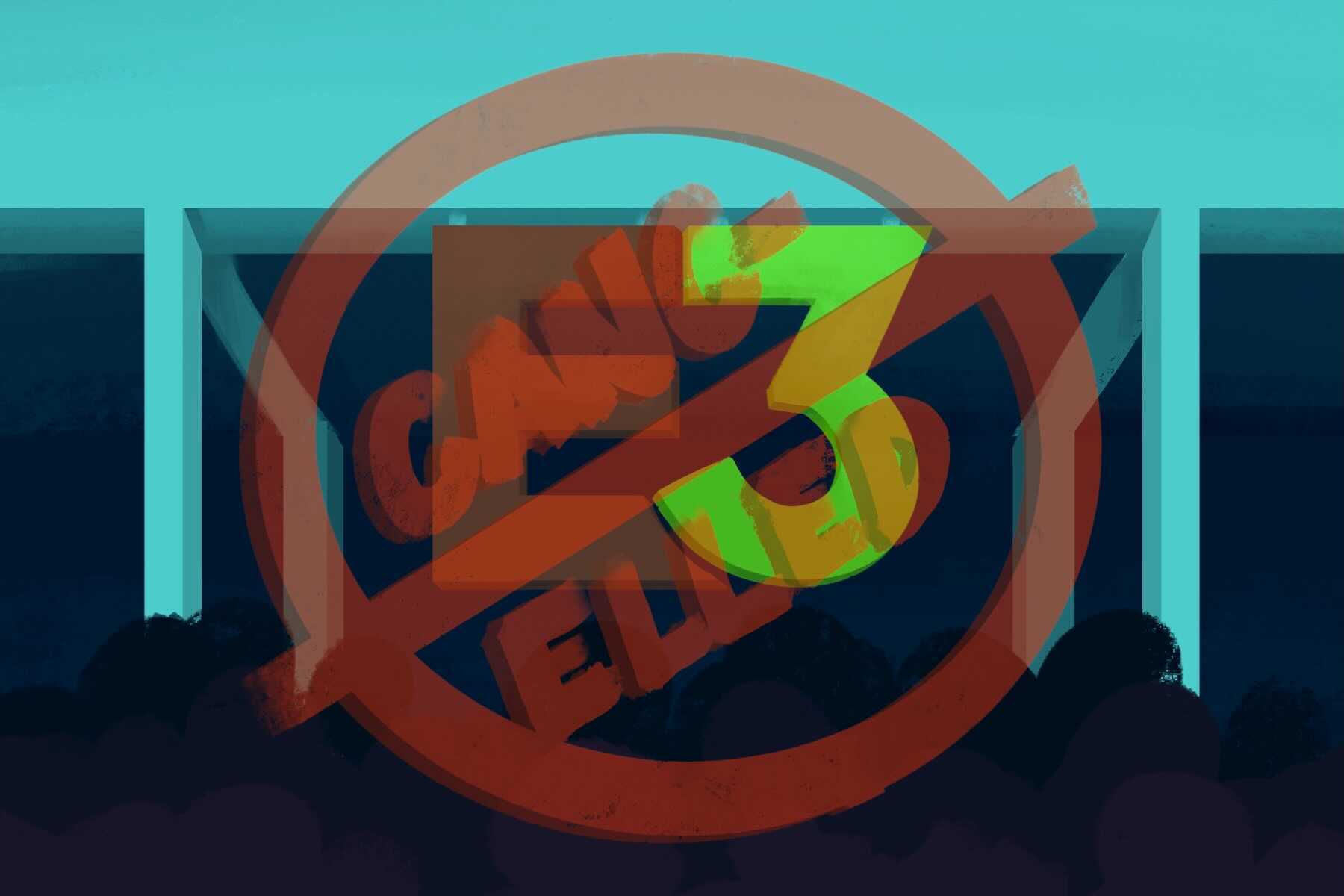The Electronic Entertainment Expo, also known as E3, was once the central hub for exclusive gaming announcements and showcases from the most prominent names in the industry. This yearly event hosted by the Entertainment Software Association (ESA) was once widely anticipated by consumers and developers. However, the ESA’s recent decision to cancel the in-person and digital events for E3 2022 demonstrates how the gaming market has changed.
Although the loss of E3 would have been detrimental for many prominent gaming companies in previous years, the lack of a noticeable impact this year serves as proof that the expo no longer holds the enormous clout and reputation that it once boasted.
A Chronology of E3’s Downfall
The first E3 in 1995 was hosted at the Los Angeles Convention Center from May 11-13. The ESA’s new expo faced multiple well-established competitors in the form of the Consumer Electronics Show (CES) and the European Computer Trade Show (ECTS). However, E3 differentiated itself by focusing solely on video games and featuring prominent companies from around the globe, such as Nintendo, Sega, Microsoft and Sony.
Access to the event was limited to gaming industry members, retailers, and press reporters. As a result, most of the half-hour press conferences at E3 1995 were simple presentations detailing each company’s upcoming games, hardware and business plans. Despite not being open to general consumers, the event attracted more than 55,000 attendees, cementing the expo as the ideal location for gaming news and announcements for many years.
Throughout the rest of the 1990s and early 2000s, E3 increased in prominence, evident from rising attendance numbers and a growing reputation. Developers became more eager to showcase new products at E3 as their audience increased in size with each consecutive year (except for 1997, when the expo relocated to Atlanta, Georgia).
E3 reached its peak attendance in 2005 with over 70,000 guests. However, the booming success of E3 also brought higher costs for the ESA and participating companies. The rapidly increasing number of attendees proved to be a double-edged sword, as many of these new visitors were bloggers and other visitors with little to no industry influence.
The ESA attempted to counteract this problem in 2007 and 2008 by hosting smaller events, which limited the number of guests and required attendees to be associated with high-profile gaming media or retail companies. The event was also moved to July, with an article by Tor Thorsen and Brendan Sinclair claiming this was intended to give publishers more time to organize their holiday release schedules. These changes were signified by the expo’s rebrand to the “E3 Media and Business Summit.”
Unfortunately for the ESA, the new format was widely panned by journalists and industry professionals. The costs may have been reduced, but this hardly mattered when the massive audience that defined E3 was absent in these years. This led to a temporary departure of Activision (now known as Activision Blizzard) and Vivendi from the ESA, which inspired other publishers to follow suit. E3 had faced minor struggles in past years, but this departure of multiple prominent companies raised the question of whether the expo was still relevant in the modern gaming industry.
In a second attempt to improve the experience for guests and participants, E3 2009 returned to the larger format, albeit with the much more relaxed restriction of 45,000 guests. This return to form was represented by E3’s return to its previous name, the “Electronic Entertainment Expo.” The event’s reputation had been partially restored, but this did not stop companies from continuing to separate from the ESA.
Although Activision-Blizzard rejoined in 2013, Electronic Arts and Sony left to form their press events in 2016 and 2019 respectively. Nintendo remained a part of the ESA, but they switched from live conferences to pre-recorded presentations called “Nintendo Directs” in 2013. These videos aired every few months, making their E3 presentations seem less eventful than in previous years.
As companies started finding their alternatives to E3, the convention gradually began losing its luster in the eyes of consumers and publishers. Social media and online press had already begun replacing in-person conventions as the primary source of gaming news. The major companies that had supported the ESA since 1995 were now wealthy enough to create entire press events where they would be the sole focus of attention. Gaming trade shows like E3 were quickly becoming an outdated concept in the eyes of many consumers.
The exclusive access to business insiders and journalists was doing little to support E3. As a result, the ESA turned to general consumers to garner support. The organization gave away 5,000 tickets for E3 2015 to non-professional fans, hoping these guests would promote their experience over social media and build support for the convention. Following years continued to cater to consumers through increased tickets, expanded access and additional events such as game tournaments and developer conference panels.
With these changes, E3 saw over 65,000 attendees each year from 2017 to 2019. However, this consumer-centric period brought the side effect of a significant loss of exhibitors, as E3 was shifting from a simple trade show to a widely staged series of advertisements. Rather than describing upcoming products and marketing strategies to attract investors, newer conferences emphasized flashy presentations to generate excitement for upcoming releases.
This large-scale advertising certainly benefited some companies but was unnecessary for those with a far more significant presence in the gaming industry than the ESA. For these larger companies, the cost of participating in E3 alongside numerous competitors was no longer a worthwhile investment.
The COVID-19 pandemic forced the ESA to cancel E3 2020 altogether, but the expo’s absence was hardly noticed throughout the gaming industry. Most major companies and indie publishers hosted their own digital press conferences, essentially accomplishing the same goals without the high costs of paying for booths or on-stage exhibitions.
When E3 2021 moved to a livestream format and saw many of these companies rejoin them, it ultimately felt like a more extensive, less-focused version of the prior year’s online events. Furthermore, it now faced competition in the form of events that decided to remain separate.
The ESA is losing its control over the gaming trade expo market. With the rise of competition from its many former supporters, the concept of a trade expo has lost its appeal and necessity in the modern gaming industry. Online advertising and gaming news have simplified the announcement of new products and business plans, reducing the need for these annual events.
If E3 had continued to follow its current formula, it would surely end within the next few years due to a decreasing amount of support. ESA has recognized this problem, and according to a statement published by Variety, E3 2022 was canceled to create “an all-new format and interactive experience” for E3 2023.
The Next Step for E3
The reasons given for E3 2022’s cancellation raise the questions of how a new format could improve E3 and what problems it would need to address. E3 offers little incentive for large companies to join in its current state. In an interview with CNET, Shawn Layden, the former chairman of PlayStation Studios (known as “Sony Interactive Entertainment Worldwide Studios” during his tenure), criticized E3 for lacking a purpose in the current gaming market.
Although the trade-show format was the best platform for game companies to make announcements and advertise upcoming products, the internet has since replaced it as the primary source of information for most consumers and investors. Gaming news-press will quickly report on any upcoming projects, while livestreams or social media accounts allow publishers and developers to deliver news to the public instantly. Because of this change, E3 could no longer serve the same purpose; Layden had described it as “a trade show without a lot of trade activity.”
Layden also proposed that E3 can move forward as a Comic-Con-style fan festival. This format would focus less on announcing new consoles or titles and more so on game developers hosting casual panels where they can talk with fans. Even before the cancellation of E3 2022, the ESA had begun moving toward this direction with a side event called “E3 Coliseum,” which consisted of discussion panels with notable game developers.
The canceled E3 2020 was intended to shift toward a new style that the ESA referred to as a “fan, media, and influencer festival.” This would have involved more interactive booths and partnerships with celebrities and social media influencers to attract more consumer attendees. This format would have distinguished E3 from the other major press events held by game companies. However, switching to this format would also bring fierce competition from similar events like the Penny Arcade Expo (PAX) and Tokyo Game Show (TGS).
Conclusion
Little is currently known about E3 2023, aside from the ESA’s claims that it will be a hybrid of in-person and online experiences. However, its decision to cancel E3 2022 shows its awareness of the expo’s struggle to remain relevant and its need to adapt to the current game industry. Online news and livestreamed press conferences have invalidated the necessity for E3 as a general trade show, which has inspired its move toward creating an experience for consumers.
While it has struggled to achieve this goal over the past few years, the design plans for E3 2020 detail a more casual and interactive experience that will help the expo stand apart from its competition. Hopefully, the ESA will learn from its past attempts to revive E3’s reputation as the most important and exciting annual event in the gaming industry.

















